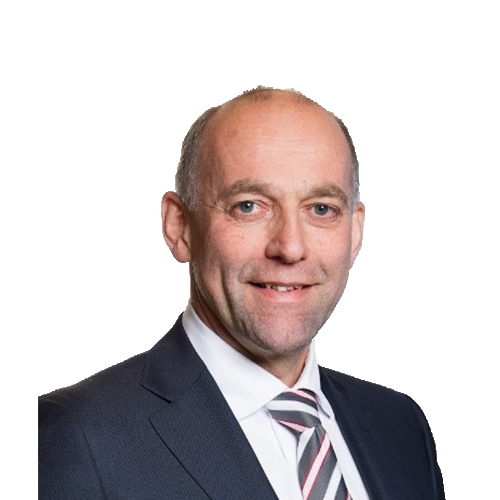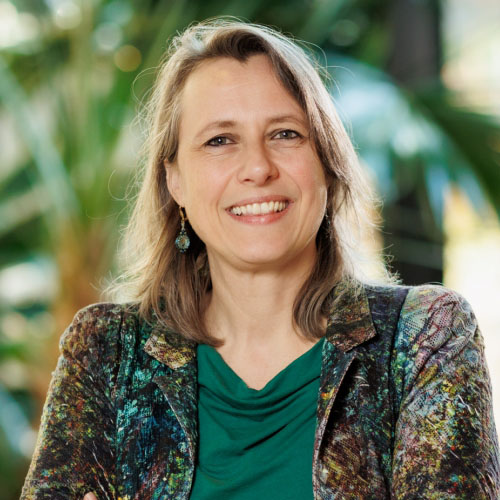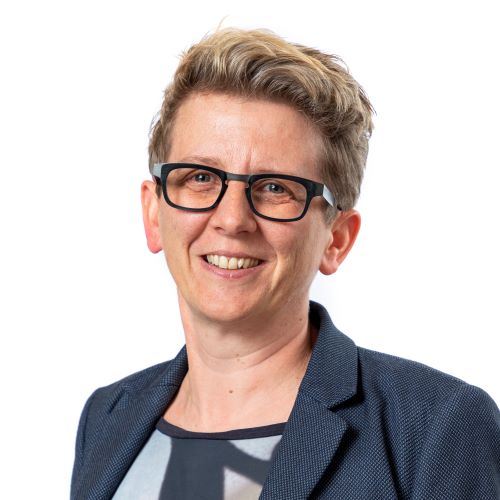Stark findings in the IPCC Climate Mitigation Report, our experts react
12-04-2022
Climate changeThe newest report from the Intergovernmental Panel on Climate Change (IPCC) provides an updated global assessment of climate change mitigation progress and pledges. Setting out the evidence for the need for immediate and drastic action. Four of our leading experts share their thoughts on the report and its findings.

Perfect can wait, we need action now
There is no time to wait for the perfect solution, this latest IPCC report shows us that we need to act now if we are to avoid the carbon tipping point says Rinus Vader, Leading Professional Energy Transition Built Environment.“The IPCC’s detailed analysis – all 3,000 pages of it – sets out the stark reality of our global climate predicament. The urgency underlying the report is the finding that we are on a trajectory which will see the global temperature rise by 3.2°C during the 21st century. Well beyond the 1.5°C cap of the 21st Conference of Parties, which led to the Paris Agreement – and was confirmed at the 26th COP, last year in Glasgow.
We need to dramatically, and rapidly, cut our carbon emissions. Engineers work on a lot of projects whose delivery might take decades, so it’s clear that a new approach is needed.
We need to do everything we can to implement solutions in the short term which will arrest the rate of rise. Alongside this we must continue to invest in and develop the longer-term projects to reduce carbon emissions at all stages of asset lifecycle.
We must stop waiting for a project or technique to be perfect before we bring it online. Quick wins should be given priority funding and focus. Those responsible for the delivery of both short, and longer-term solutions, must look for ways to streamline everything from permits and construction to commissioning and operations.
With this need for short-term solutions in mind, the report is compelling evidence for the use of carbon capture and storage. It also shows that each of us can personally contribute to the effort to bring carbon emissions under control. Changing diets, planting trees (everywhere – not just in the Amazon) and creating ponds and bodies of water in urban areas are just some of the ways that individuals, local authorities, and private companies can contribute. These efforts can’t make a significant difference on their own but with a global effort they might just help stem the rise.”

We need to combine quick fixes with long term solutions to rapidly lower our carbon emissions. For buildings, a 75% carbon reduction by 2030 is better than 100% in 2050.
Cities are key to reducing emissions, but they can’t do it alone
Olga Teule, Associate Director Traffic models, welcomes the regional planning approach the report advocates and suggests that better traffic modelling can help cities lead the way. But she also feels that globally there must be increased economic and social drivers if we are to achieve real change.“Working in the industry, we know roughly what to expect from a report like this but reading it is still enough to induce a severe sense of anxiety.
What the report shows is how hard rectifying our carbon emissions is going to be – and how much harder it is getting for each moment we delay. The report asserts that cities can play a key role in the fight against the temperature rise. They can’t do this alone though and regional planning must form the foundation for change.
Traffic modelling and digital tools such as Flowtack can have a significant impact on emissions, make cities less congested, reducing accidents and improving reliability of public transport. However, a whole region approach is needed to deliver the even greater emission reductions and behavioural changes necessary to address this crisis.
The green urban infrastructure and investment in the creation of healthy cities advocated by the report are a positive step. Encouraging increased bicycle use and walking will support the role individuals can play in the global effort. However, this global effort needs to apply to the bigger picture too. Global supply chains are complicated and result in carbon emissions at every step. Reimagining them will take global consensus, courage, and innovation.
Human behaviour is such that we will only see major progress if there are strong economic and social drivers to compel innovation and behaviour change. The true cost to society should be reflected in the price of transport, this will help both industry and individuals choose more sustainable options. It’s this sort of pressure that I feel was missing from the report.”

We need a global approach and more economic incentive to produce the behavioural changes that will combat emissions.
Cross-sector collaboration is key to solving climate crisis
Water has a role to play in the collaborative effort to reduce carbon emissions says Ellen van Voorthuizen, Senior consultant Wastewater technology.“Much of climate change’s most tangible effects are either too much or too little water. The report’s recognition of the value of water is a welcome addition to the narrative.
Climate change asks for immediate action both in reducing CO2 emissions as well as in adapting our cities and our landscape. Speeding up the timeline demands a collaborative approach. We must cooperate and unite all sectors to enable us to adapt.
A lot of focus is put on the extraction of by-products from wastewater. But water is the most abundant and valuable resource that can be recovered during treatment. By optimising the treatment process and considering the location of plants, water extracted from wastewater has the potential to alleviate shortages during drought or to contribute to water circularity in industry.
Wastewater can also be an important source of bioenergy. Methane captured during the treatment process can be stored and used as fuel – saving it both from being released into the atmosphere and providing an alternative energy source.
In developed countries, such as the Netherlands and the UK where water authorities have adopted a net zero carbon commitment by 2030-2050, the role water plays in mitigation of climate change is already recognised. In countries without such rigorous treatment of wastewater, the opportunity to extract the full value from water and captured methane is not fully utilised.
Supporting improvement in wastewater treatment in these countries and continuing to optimise treatment in developed countries could make a contribution to cutting emissions.”

The complexity of climate change means that every sector must play a role. Better wastewater treatment will conserve water, control pollution of surface waters, cut emissions and be a source for bioenergy.
Finding the right mix: net zero energy system critical for climate mitigation
Piyush Katakwar, Global Hydrogen Lead, feels the report highlights that the tools and expertise to achieve a net zero energy system, that includes hydrogen, already exist but lack of policy and enforcement is holding up progress.“The IPCC’s report shows that we have the knowledge to prevent the 3.2C temperature rise we are currently projecting. Frustratingly it is the policy makers that are lagging. Without their drive, progress will be slow.
Costs of a successful energy transition will be high and will require private investment with long term benefits. Financial systems and company strategies need to change their business model to support this, but they can’t do so without clear government policy to guide their decisions.
We need an immediate transition to a more sustainable energy mix. This means ending our reliance on coal, oil and gas and moving to renewable sources such as solar and wind.
Green hydrogen is expected to play a significant role in the transition to more sustainable energy use in industry. It will also have an impact in other sectors such as shipping and aviation where electrification is challenging at present. We’re already supporting clients in exploring the potential and building a business case around low carbon - including increased hydrogen production and use, but there needs to be better understanding and education in all sectors to fully exploit the potential of this technology.
Developing countries can gain from the experience of more developed nations, allowing them to choose the early adoption of renewable energy technology. Alongside wind and solar, hydrogen has an important role here too as it can be stored and used to balance energy supply as required. Developed nations have a responsibility to support these efforts, and not compete for resources.
Citizens also have a responsibility to hold business and government to account. By choosing to invest in pensions, stocks or shares in companies committed to net zero goals they can effect real change on company policies and financial systems.”

Accelerating transition to a net zero energy mix – that includes green hydrogen – is essential if we are to dramatically reduce carbon emissions.
